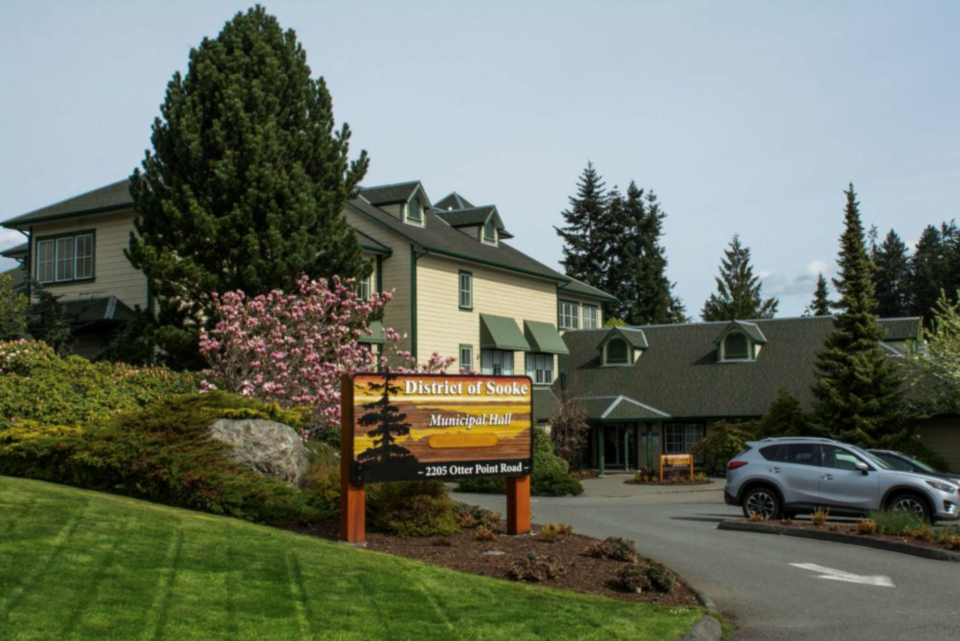A consultant’s report for the District of Sooke said the municipal government’s lack of leadership, its siloed staff and a history of bullying and harassment were only magnified by the pandemic.
“As experienced by many organizations, the last three years have been a tumultuous time, and lockdowns, shortage of qualified job applicants, working from home and the like are taking their toll,” said the report by Jonathan Huggett, the veteran engineer that the City of Victoria hired to oversee completion of the troubled Johnson Street Bridge project.
The council in the capital region’s westernmost municipality, with a population of 16,000, retained Huggett last November. He interviewed senior staff, councillors and selected community members, determined strengths and weaknesses of the organization and its staffing, and submitted his report in February. In late April, the District of Sooke published a summary on its website. A redacted version of the confidential organizational review was later released under freedom of information law.
The report said there was a cascade of change within the organization after chief administrative officer (CAO) Norm McInnis took ill and was replaced by an interim CAO, Don Schaffer, in May 2022. A new director of planning, Matthew Pawlow, arrived in March 2020, just in time for the pandemic upheaval, and a new director of engineering and operations joined shortly after.
One of the report’s recommendations was to hire a new CAO as soon as possible. Huggett said the successful candidate must be readily available, experienced in motivating senior staff to work cooperatively with key stakeholders and must possess extensive experience in B.C. municipal government.
Huggett also identified problems and delays in development permit and project approvals that jeopardized local investment, development revenue and employment opportunities.
“My view is that neither council, staff or developers are at fault. The process is simply wrong,” Huggett wrote. “Both staff and developers have indicated to me that many of the bylaws are outdated or simply unworkable. Presumably that was one of the reasons why council and staff both wanted an amended [official community plan], which then drives revised bylaws.”
As an example, Huggett mentioned the Mid America Venture Capital-proposed retail and office development, held up by a difference of opinion over three metres of required road right of way.
“This should be easily resolved between staff and the developer, but there appears to be no mechanism for compromise and negotiation. The District acknowledges a full 20 m[etre] right of way is not required and even 17 m[etre] is not required for at least 10 years and likely longer. The developer is also unwilling to move on this issue.”
In the planning and development department, Huggett said the official community plan process needs to be restarted, bylaws reviewed and more staff hired.
“There are really two types of development applications: the minor work where a local person wants to do some minor applications, and then there are major projects like the proposed shopping centre, etc. Minor and major should likely be treated differently. A number of developers have indicated a willingness to fund planning consultants who would work under district direction to review applications for major projects.”
Sooke began reviewing its official community plan (OCP) in 2016-17 during Mayor Maja Tait’s first term. The 2018-elected council committed to finish it before the 2022 election. Rather than updating the existing version, council decided to prepare a new one because of changes in legislation, projections and greenhouse gas targets. Huggett suggested Sooke look at the efficiency of City of Surrey’s 2013, four-step OCP process.
“Restarting the OCP process would take considerable staff resources. Council and the CAO need to establish priorities. It is not possible with the existing staff to do everything such as restarting the OCP, revising bylaws, dealing with development applications in a timely manner and hiring additional staff. Priorities must be set.”
The report also recommended hiring an outside specialist to deal with bullying and harassment and require detailed business plans for every project from engineering and operations.
When Sooke published the summary of Huggett’s report, it said it had engaged a headhunting firm to find a new CAO and it was working on the other recommendations.
“Mr. Huggett’s findings, while not surprising, provide value through a third-party affirmation of the direction of the District of Sooke operations,” said the Sooke statement.



